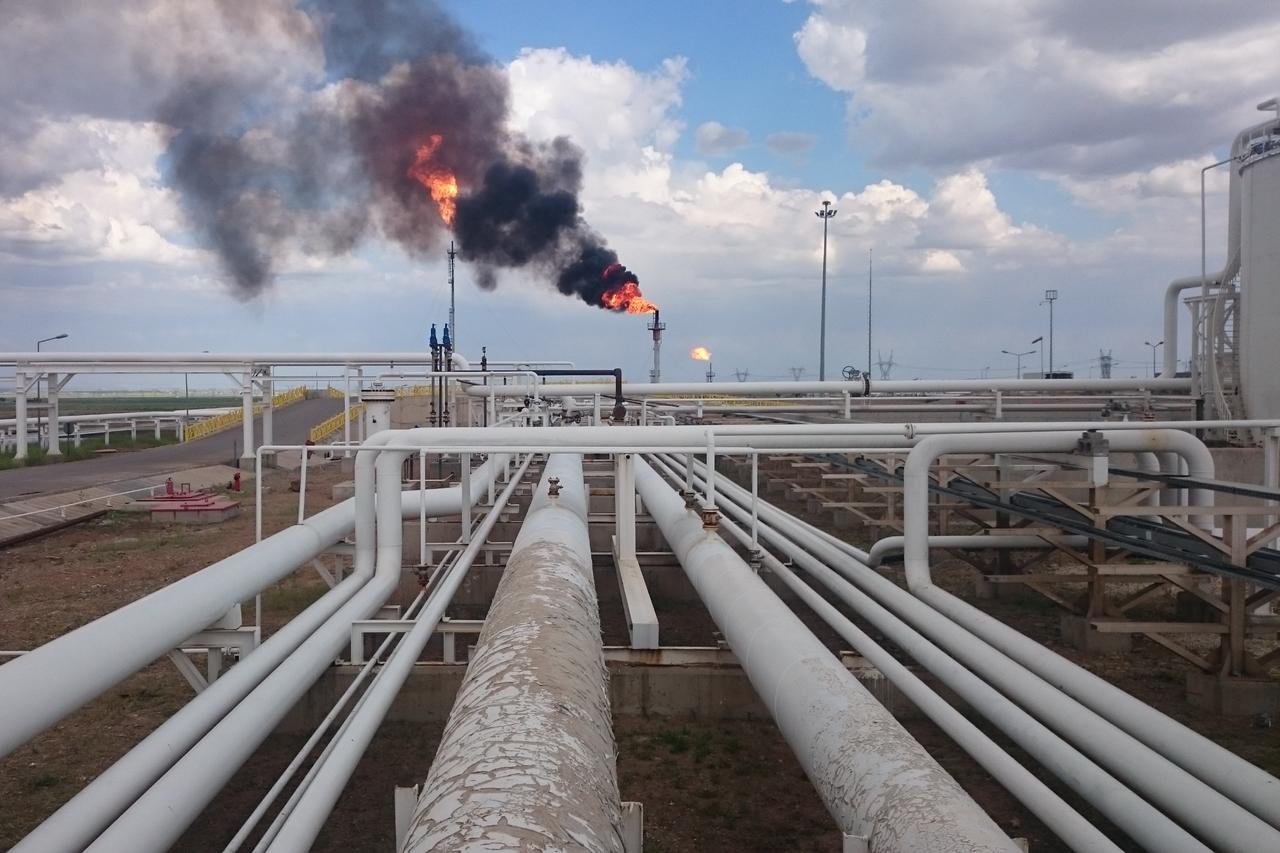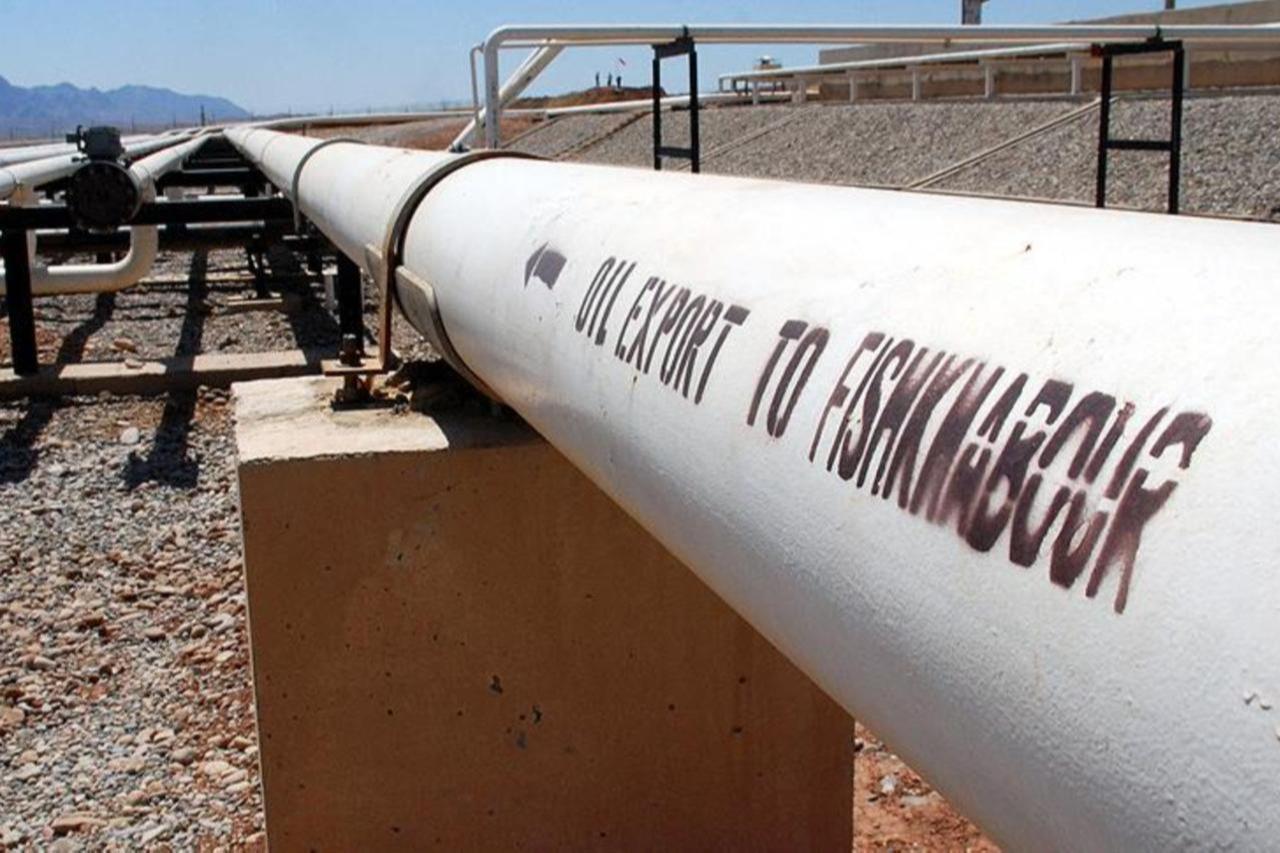
Türkiye’s Energy and Natural Resources Minister Alparslan Bayraktar announced Saturday that oil flow through the Iraq–Türkiye Crude Oil Pipeline resumed at 7.07 am local time (0407GMT).
Bayraktar confirmed the reopening in a post on X, saying: “As of 07:07 this morning, oil flow has resumed through the Iraq–Türkiye Crude Oil Pipeline, which had been temporarily shut down due to the earthquakes of Feb. 6, 2023, and was made operationally ready by BOTAS on Oct. 4, 2023.”
Iraq’s official news agency INA reported that exports also resumed from oil fields in the Kurdish Regional Administration in northern Iraq. Ali Nizar, director of Iraq’s State Oil Marketing Organisation (SOMO), told Agence France-Presse (AFP) that exports from the Kurdish region via the Iraq–Türkiye pipeline had started.
He said SOMO will receive 190,000 barrels per day for export and another 50,000 barrels for domestic consumption.
According to reports, exports resumed at the Fishkhabur oil field with the participation of a delegation from the Kurdish Regional Administration, the Iraqi central government, and oil companies.
Iraqi Prime Minister Mohammed Shia al-Sudani earlier announced that crude produced in the Kurdish region would once again be exported through the Iraq–Türkiye pipeline.
“Today we reached a historic agreement under which the Federal Ministry of Oil will receive crude oil produced from the fields in the Kurdistan Region of Iraq and export it through the Iraq–Türkiye pipeline,” he said on X.
He added that the deal ensures “fair distribution of wealth, diversification of export outlets, and encouragement of investment,” calling it “an achievement 18 years in the making.”
Before the shutdown, Kurdish authorities sold oil independently through Türkiye’s Ceyhan port without Baghdad’s approval.
But exports froze in March 2023 after the International Chamber of Commerce in Paris ruled that sales by the Kurdish administration were illegal and that Baghdad had the sole right to market Iraqi oil.
The Kurdish administration said earlier that it had signed agreements with local and foreign companies to resume exports and was awaiting approval from Iraq’s Oil Ministry to restart flows.

Control over lucrative oil exports has long been a flashpoint between Baghdad and Erbil, the Kurdish regional capital.
The Kurdish authorities have argued the Iraqi constitution grants them the right to manage their own natural resources, while Baghdad insists all sales must go through the federal Oil Ministry. The dispute has fueled years of tension over revenue sharing and payments to international companies.
The Kurdish region's association of petroleum industry APIKUR, which represents international oil firms operating in the region, estimated losses to Iraq at more than $35 billion since the pipeline closure.
On Wednesday, eight foreign oil companies said they had agreed to resume exports via the Iraq–Türkiye line.
The deal requires companies to meet with Kurdish authorities within 30 days of restarting flows “to work toward creating a mechanism for settling the outstanding debts” owed to them. The Kurdish region owes about $1 billion to oil firms.
Norwegian group DNO ASA said it would not join the deal, insisting exports should only resume “pursuant to agreements that ensure payment surety.”
The Kirkuk–Ceyhan pipeline, closed since March 2023, is now operating again after nearly two years. Before the shutdown, it carried about 500,000 barrels per day, though its capacity is 1.5 million. In July 2025, Türkiye said it would terminate its decades-old pipeline agreement with Iraq by 2026, citing the need for a new framework to reduce legal disputes and make fuller use of the system.